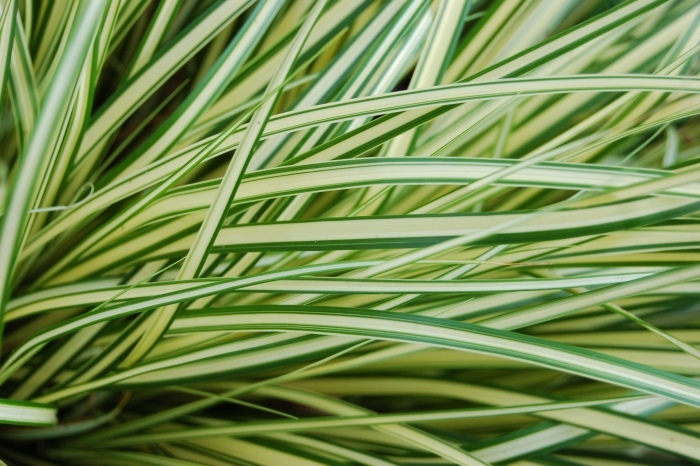Japanese Sedge
(Carex oshimensis)
Japanese Sedge (Carex oshimensis)
/
/

Photo (c)2006 Derek Ramsey (Ram-Man)
CC BY-SA 2.5
Image By:
Photo (c)2006 Derek Ramsey (Ram-Man)
Recorded By:
Copyright:
CC BY-SA 2.5
Copyright Notice:
Photo by: Photo (c)2006 Derek Ramsey (Ram-Man) | License Type: CC BY-SA 2.5 | License URL: https://creativecommons.org/licenses/by-sa/2.5 | Uploader: Ram-Man | Publisher: Wikimedia Commons | Title: Evergold_Sedge_Carex_oshimensis_'Evergold'_Leaves_3008px.JPG | Notes: User created page with UploadWizard |
































Estimated Native Range
Summary
Carex oshimensis, commonly known as Japanese sedge, is a perennial herbaceous plant in the genus Carex, native to the understory of moist, forested areas on the Tokyo Islands of Japan. It typically grows to 50 cm (20 in) tall and broad, with a clumping habit that makes it an effective ground cover. The foliage is striking, with a broad yellow stripe down the center of each dark green leaf, which adds visual interest throughout the year. The ’Evergold’ cultivar is particularly noted for its variegated leaves and has received the Royal Horticultural Society’s Award of Garden Merit for its garden performance.
Japanese sedge is valued for its ease of maintenance and its ability to thrive in moist soils, making it a popular choice for planting in sun or partial shade in urban gardens, borders, and as a non-spreading ground cover. It requires medium amounts of water and prefers soils with medium drainage. While it is generally pest-free, it can suffer from rust or root rot if conditions are too wet. It is not known to be invasive and does not have aggressive roots, making it a safe choice for planting near structures or other garden plants.CC BY-SA 4.0
Japanese sedge is valued for its ease of maintenance and its ability to thrive in moist soils, making it a popular choice for planting in sun or partial shade in urban gardens, borders, and as a non-spreading ground cover. It requires medium amounts of water and prefers soils with medium drainage. While it is generally pest-free, it can suffer from rust or root rot if conditions are too wet. It is not known to be invasive and does not have aggressive roots, making it a safe choice for planting near structures or other garden plants.CC BY-SA 4.0
Plant Description
- Plant Type: Grass
- Height: 1-1.5 feet
- Width: 1-1.5 feet
- Growth Rate: Moderate
- Flower Color: N/A
- Flowering Season: Spring, Summer
- Leaf Retention: Evergreen
Growth Requirements
- Sun: Part Shade
- Water: Medium
- Drainage: Medium
Common Uses
Bank Stabilization, Bird Garden, Border Plant, Butterfly Garden, Deer Resistant, Drought Tolerant, Groundcover, Low Maintenance, Potted Plant, Rock Garden, Salt Tolerant, Street Planting, Water Garden
Natural Habitat
Understory of moist, forested areas on the Tokyo Islands of Japan
Other Names
Common Names: Oshimastarr , Oshima Kan Suge
Scientific Names: Carex oshimensis , Carex oshimensis f. variegata , Carex hachijoensis
GBIF Accepted Name: Carex oshimensis Nakai